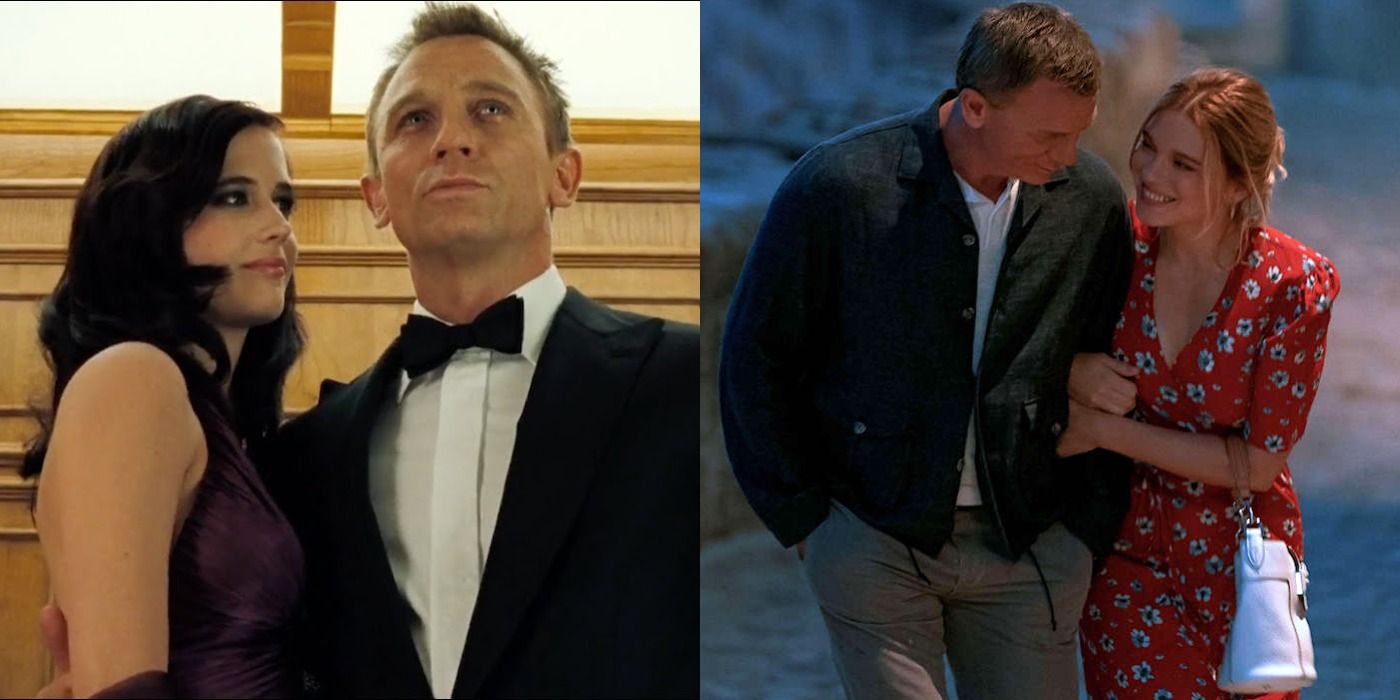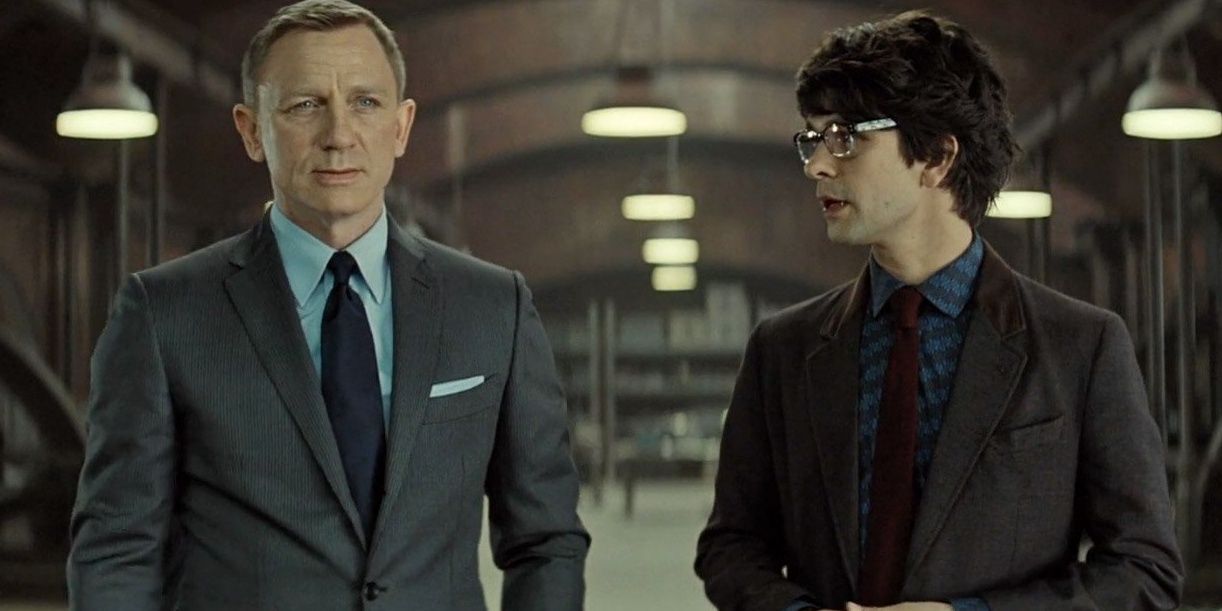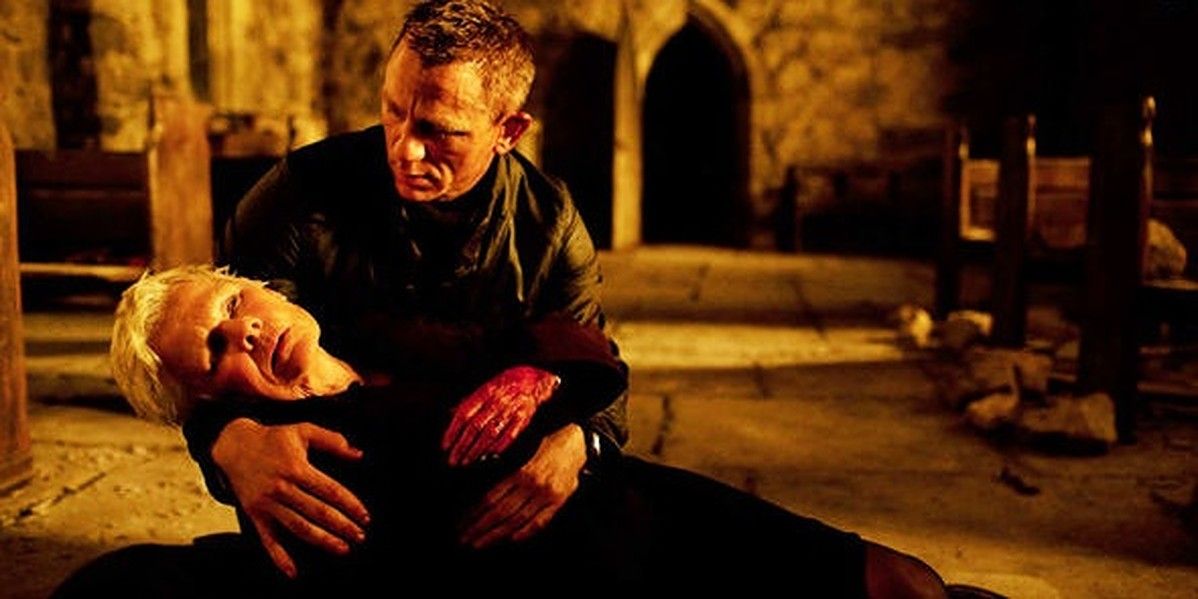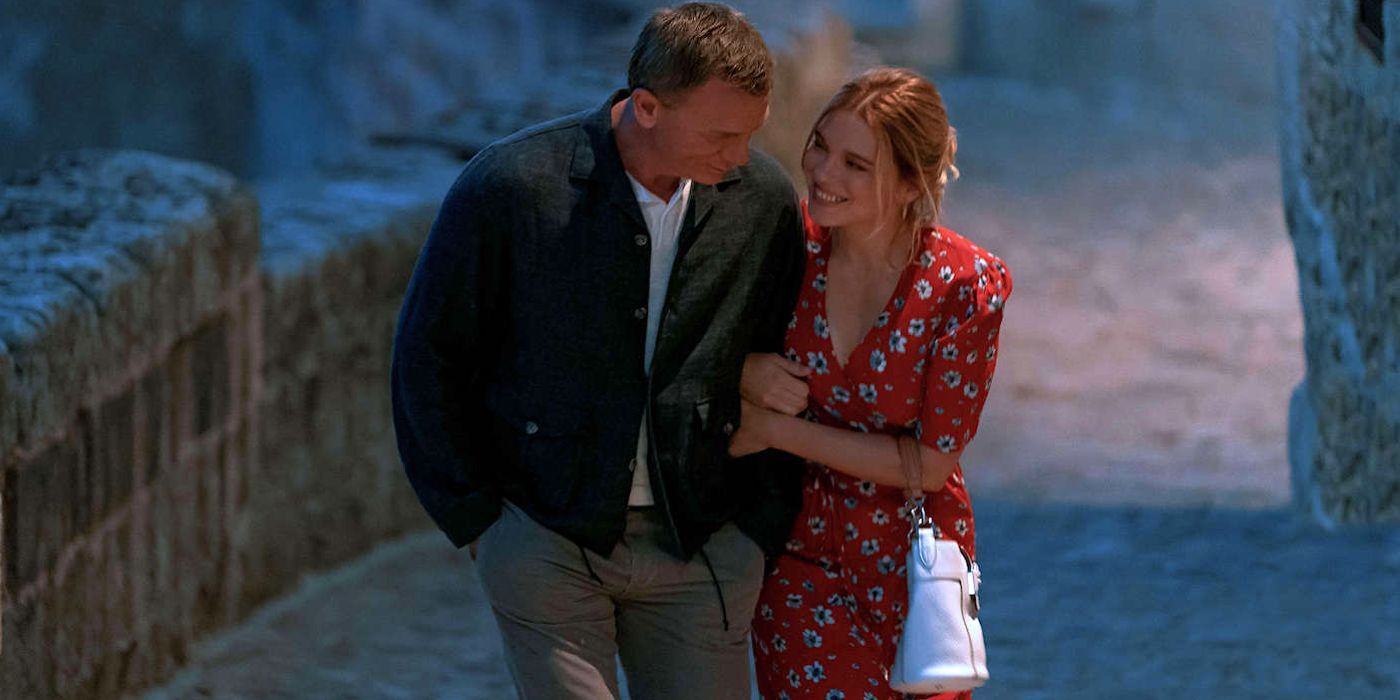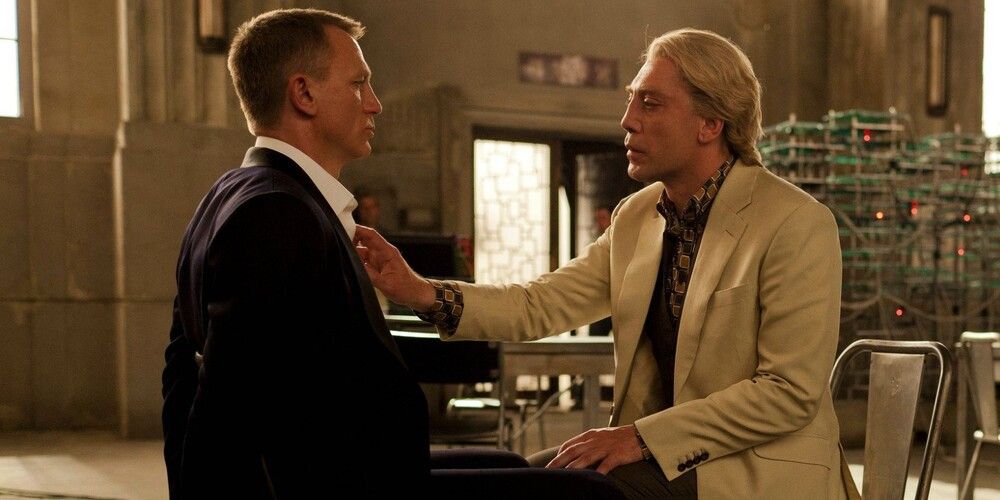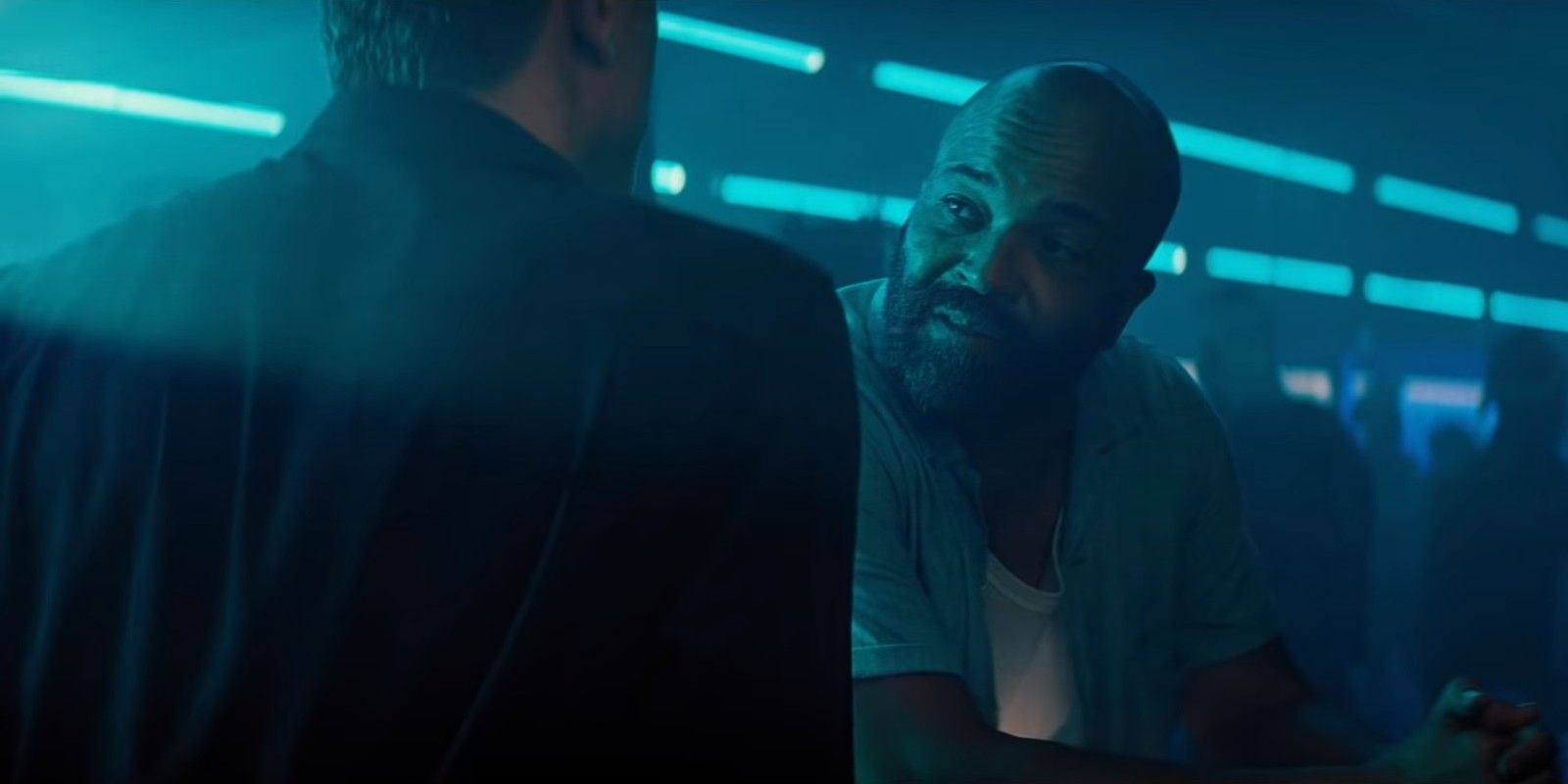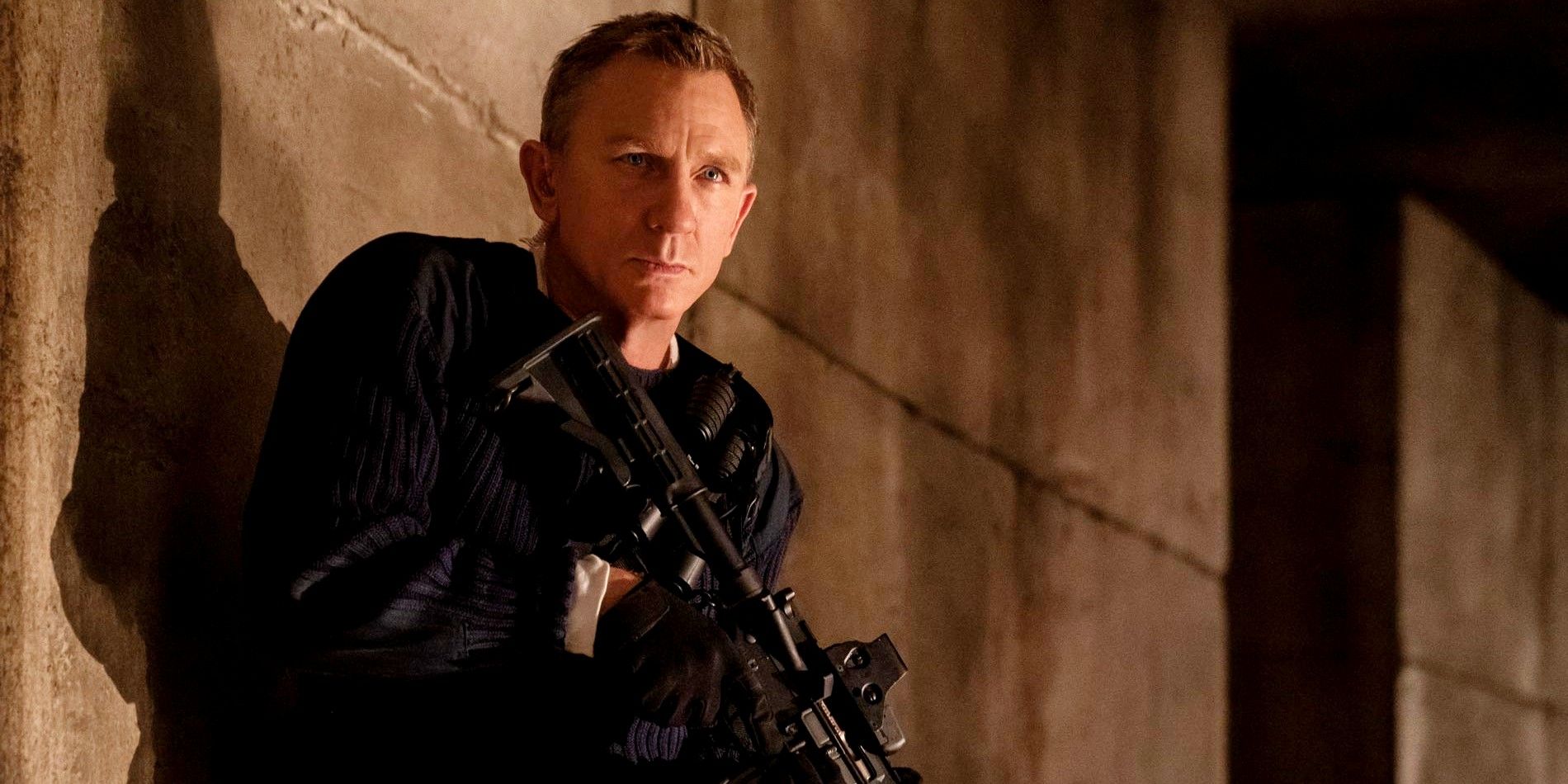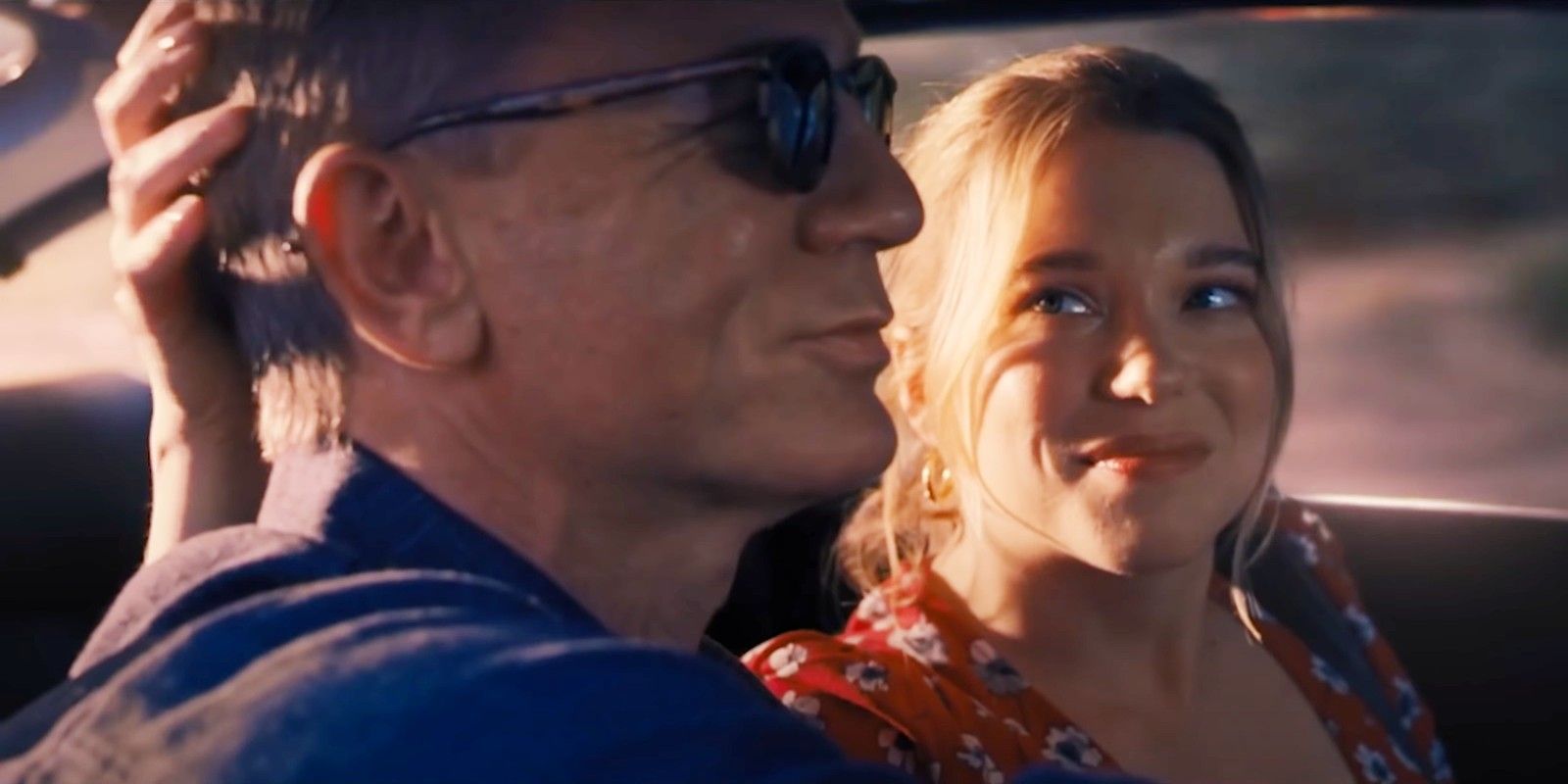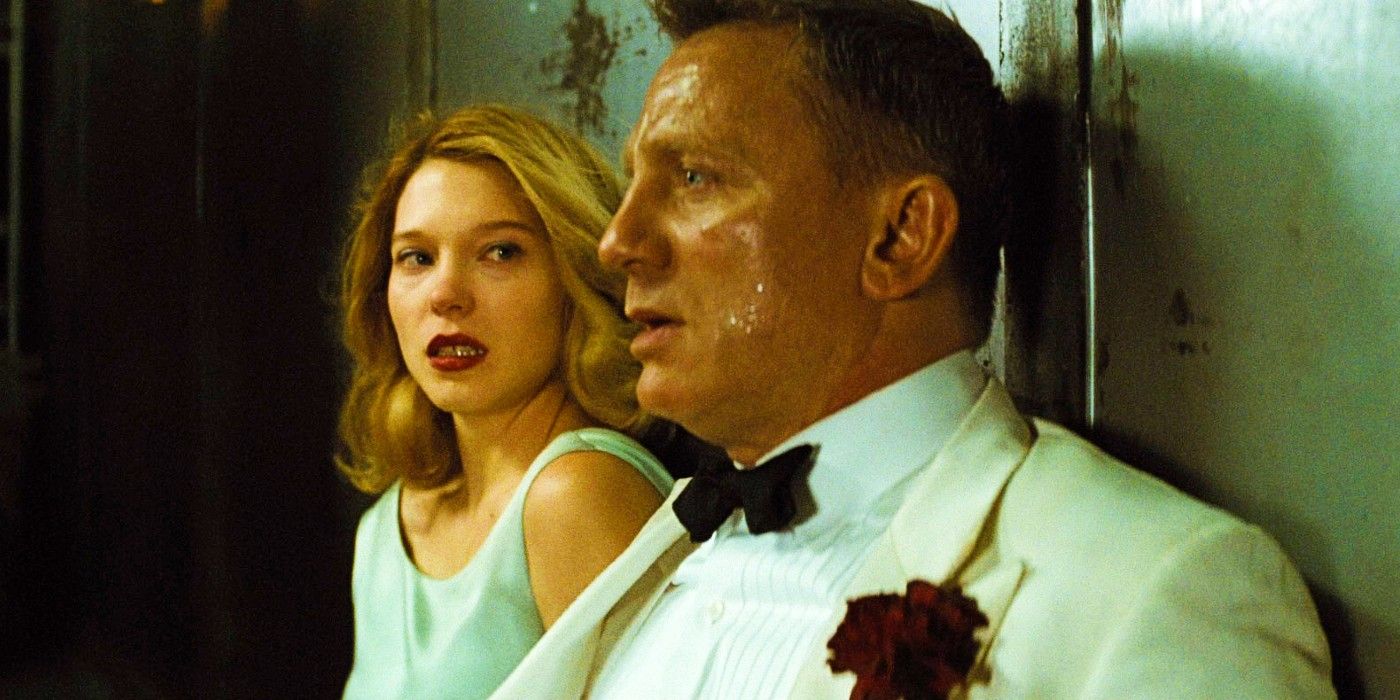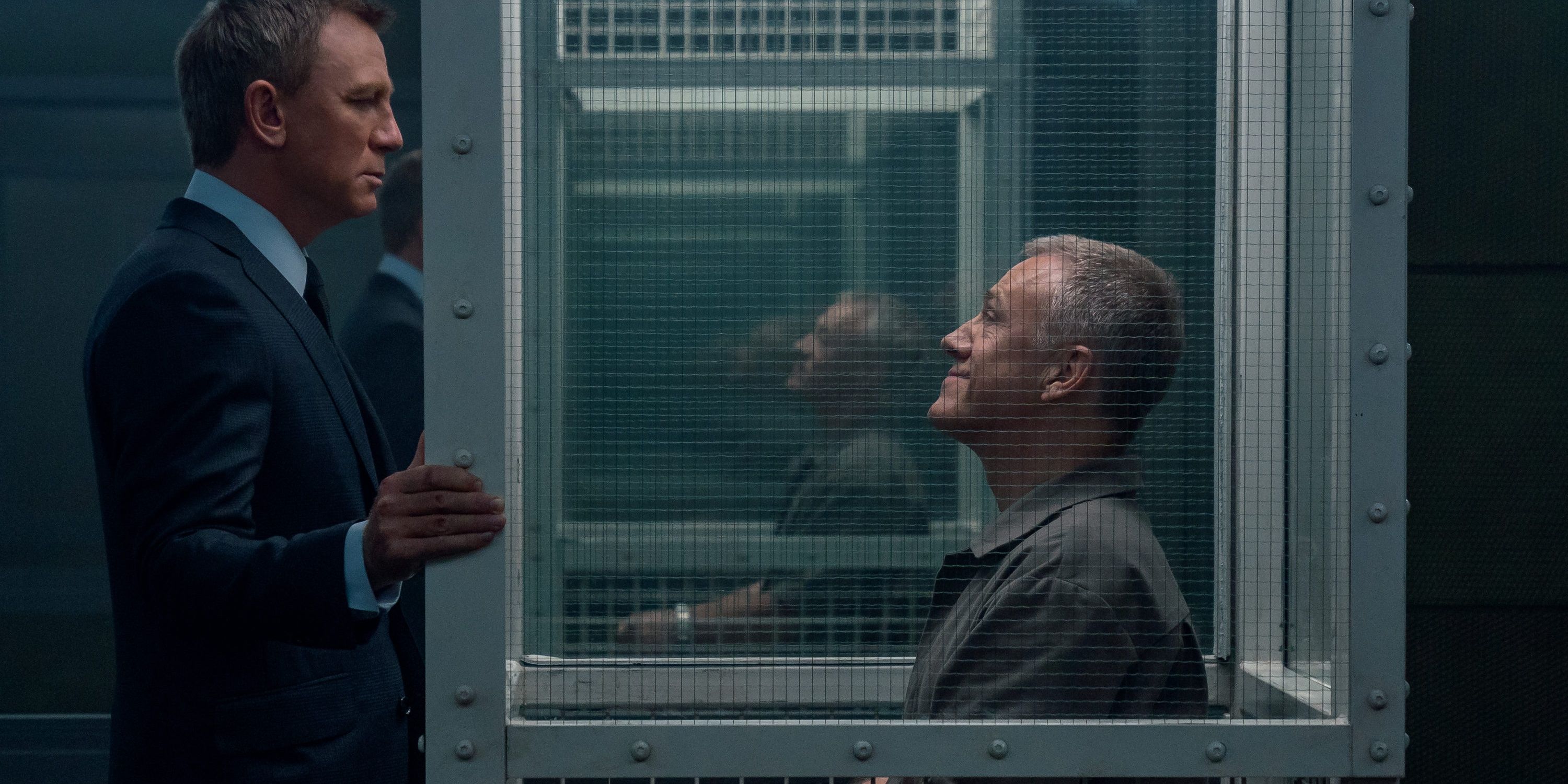Warning: Contains Spoilers for No Time To Die.
Daniel Craig bowed out as James Bond with No Time to Die, marking an end to the character’s progression all the way from 2006’s Casino Royale. The latest movie saw Bond take on Lyutsifer Safin and SPECTRE in a story that culminated all of the plot points from Craig’s debut.
With fifteen years worth of development, Bond underwent changes in his personality and traits. These had to do with the influence of supporting characters like M, Vesper Lynd, Madeleine, Swann, Q, and more. Since the character is now done for good, it’s worth taking a look at how he started out and the ways he changed by the end.
He Has The Capacity To Be Sillier & Goofier
Daniel Craig’s Bond was considered to be the darkest since Timothy Dalton’s, and Casino Royale didn’t have him make use of much of his comedic skills. Bond was more of a silent type who relied on sniping remarks for dry comedy and wasn’t too animated with his expressions.
Things changed from Skyfall onwards, as his interactions with characters like Q and Moneypenny brought the funnier side of Bond out in different ways. In No Time to Die, Bond acted far more flimsy at times when messing with others. He poked fun at Paloma’s erratic behavior and teased Q over his plans for a date.
He's More Open To Reveal His Emotions
Bond started out as the stoic type, in that he didn’t want anyone to see what he was thinking and wasn’t verbose either. The only person he opened up to was Vesper but that was only because they fell in love. Bond became open where his emotions were concerned when M’s life was threatened.
He found he could share his own secrets with her after learning of M’s past, and Bond’s most emotional moment arrived when he grieved for M’s demise. By the events of Spectre, Bond had found Madeleine and didn’t hold back on what he was feeling. He didn’t bottle up his rage as before, nor did he hold back when he was feeling sad.
He's Learned To Move On
Although the death of Bond was the most shocking thing in No Time to Die, it would have surprised many to see him retired at the beginning of the movie. Bond had spent the last four films grieving Vesper but had finally been able to move on from her with Madeleine.
He also made peace with Blofeld’s influence in his life, as Bond was unaffected by the former’s death and didn’t let the fact that they were foster brothers weigh on him. Casino Royale saw Bond carry a few chips on his shoulder, ranging from his need to prove himself as a 007 to the betrayal of Vesper, but he didn’t let either thing affect him by No Time to Die.
He Doesn't Waste Time Butting Heads With The Villain
Bond and Le Chiffre had a personal antagonism in addition to their main motives in Casino Royale. Bond even spent a considerable time mocking Le Chiffre when he was getting tortured, showing how he took the time to butt heads with the villain.
The death of Raoul Silva marked a change in Bond’s behavior, as he chose to simply kill him with a knife to the back rather than engage in needless monologuing. Bond didn’t buy into Blofeld’s speeches about their relationship in Spectre either, and his final act was to shoot Safin without entertaining any of his dying threats in No Time to Die.
He's Far More Trusting
The dying words of Felix alluding to his relationship with James were the best quotes of No Time to Die and they completed the arc of Bond’s trust issues. He didn’t have faith in anyone in Casino Royale and every character, including Felix, had to build a rapport with him.
Bond’s problems were worsened after Vesper’s betrayal but he slowly got over them. His frequent adventures with Felix, Q, and Moneypenny brought Bond people he realized were genuinely his allies who would give their lives for him. In the end, Felix did just that, and Bond’s claim that Felix was his brother signified his eventual trusting nature.
His Fighting Style Is Slower But More Lethal
Bond’s most notable quality in Casino Royale was how quick and agile he was, with the movie starting with a big fight-chase sequence. Part of the progression of time was to show Bond’s aging, and Skyfall changed his combat skills.
Bond became more lethal, as he didn’t engage in close combat and preferred to use firearms to quickly take down his targets. His melee skills slowed down considerably, as he needed Madeleine’s help in Spectre in fight scenes, and No Time to Die had him partner up with Nomi.
He Places Emphasis On Saying Goodbye
Many viewers felt that Bond was the best character in No Time to Die because of his arc of self-reflection where he even said goodbye to Vesper's tomb. Bond initially didn’t like farewells in the slightest, choosing to send an email to tender his resignation in Casino Royale and then lying that he he'd never left in Quantum of Solace.
M’s death did a big number on Bond and he started valuing the need for genuine goodbyes. He had one with M when he was with her during her demise in Skyfall. Bond’s change was confirmed when he gave a heartfelt goodbye to Madeleine in No Time to Die, along with his MI6 cohorts.
He Craves Emotional Relationships
Bond didn’t have anyone in his life by Casino Royale and it’s why gravitated toward Vesper. He didn’t seek any emotional connections back then, with his job essentially serving as his life. Bond’s mind changed after initially attempting to start over with Vesper, and he branched out with creating more relationships after her death.
Bond’s connections with Moneypenny, M, and Q were deeper than professional relations; his dynamic with the latter has brought in great interest for Bond and Q’s fan fiction relationship. Bond and M evolved into a mother-son connection which he appreciated. Meeting Madeleine sealed Bond’s renewed outlook and he died happy knowing he was forever linked with Madeleine and their daughter.
He Understands The Struggles Of People Other Than Himself
Part of Bond’s disconnect with socializing was his lack of interest in other people’s lives. His own tragedies influenced him to empathize with others following Casino Royale. The first person he started caring for without any ulterior motive was Camilla Montes in Quantum of Solace.
His gradual change in understanding was complete by Spectre, where Bond sympathized with Madeliene for her sad upbringing as Mr. White’s daughter. Ultimately, Bond found a greater appreciation for his ability to overcome his issues after realizing others had gone through similar personal trauma.
He Acknowledges His Familial Background
Bond’s past was shrouded in mystery until Skyfall, where he returned to the movie’s titular location that was his childhood home. He was reluctant to discuss the specifics of his life in the first two movies but had to acknowledge them by Spectre when Blofeld arrived. Bond was uncomfortable with Blofeld’s status as his foster brother, which the latter antagonized him with.
However, Bond was unaffected by this fact in No Time to Die, where he acknowledged their connection but chose to identify Felix as his brother. It showed that Bond accepted his past and developed a thought process that he didn’t need to feel weighed down by it; he could focus on the people he felt were his true family.

